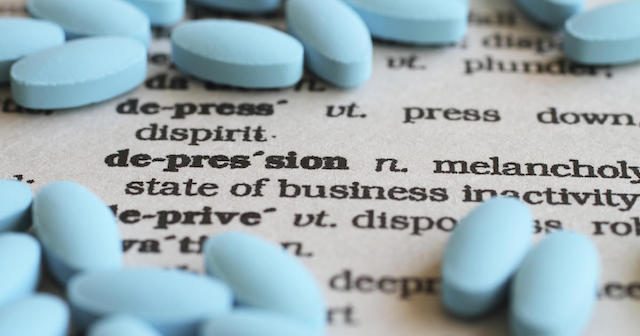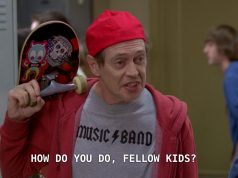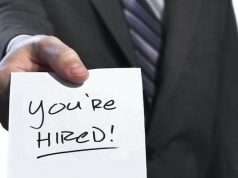
This week marks the second anniversary of the incident wherein my antidepressants quit working and I had a bit of what doctors call “cuckoo time.” Boy howdy, that was not pleasant! I did not enjoy that experience very much at all! You should try not to let that happen to you!
I wrote a long, boring column about it a few months later in which I said the incident had been the worst couple weeks of my life. And it wasn’t even a close contest. When the other nominees for Worst Couple Weeks of Eric’s Life saw my Great Depression unfolding, they were like, “Oh, man, forget about it,” like Oscar-hungry actresses watching a new Meryl Streep movie.
But as bad as the experience was, I realize I was lucky. The worst of it — the crippling, debilitating, I-cannot-possibly-endure-this misery — only lasted a couple weeks, followed by several weeks that were up and down but manageable as the new medication I’d been prescribed began to take effect. After this came four or five months of general okay-ness, marked by occasional flurries of emotional weirdness wherein I became unduly upset by nonsensical things, and one time I was at a party when this happened, and I wanted to go home but didn’t want everyone to know I was leaving early, so when nobody was looking I climbed out the back window.
Not to detract from my own pain or to diminish the amount of sympathy I want from you, but I’ve heard from other people whose struggle with clinical depression lasted longer than mine did, or who had less success finding effective treatment. There’s a shload of different antidepressants on the market — which is good because there’s not a standard drug and dosage that works for everyone and so it’s helpful to have options, but bad because the only way to find out what’s going to work for you is trial and error. I got lucky and found the right medication immediately: fluoxetine (aka Prozac), coupled with prescription-strength Ben & Jerry’s. We had to tinker with the dosage, but we eventually found it. Now every morning I take a fistful of pills, and every evening I take a half-pint of Peanut Butter Cup, administered orally. (The suppository had unpleasant side effects.)
Some people don’t believe in clinical depression as an actual diagnosable medical condition. They’ll say, “Drugs are a crutch! You just need to eat healthier, get more exercise, and think positive! It’s all in your head!” These people are known as “stupid jerks who should shut their stupid mouths.” Certainly there is potential for abuse and for over-reliance on drugs, and certainly factors like diet, lifestyle, and mindset play a significant role in treating depression. In some cases, that’s all it takes. But for most people suffering from clinical depression — not bein’ down in the dumps or feelin’ blue, but actual chemical-imbalance-in-the-brain depression — it will require a combination of behavioral changes AND medication.
No one who has not experienced the true darkness of real depression has any business telling someone who has that he or she doesn’t need medication, any more than you would say that someone with a broken arm doesn’t need a cast, or that someone wearing jean shorts doesn’t need to change clothes. Shame on anyone who considers it a sign of weakness to seek legitimate medical help for depression, especially when there are so many better reasons to look down on others.
I’m harping on this point for two reasons. One, I sought medical help for my own depression, which means it’s not a sign of weakness but a sign of awesomeness. Two, it’s still common for people to avoid getting help because they’re afraid it IS a sign of weakness, or that they’ll feel stigmatized, or that if they can’t snap out of it on their own they don’t deserve to snap out of it at all. That’s crazy talk, but it’s how some people feel. Because they are crazy. And they need to get help so they can stop being crazy. Thinking you don’t deserve to overcome depression is one of the clearest signs that you need to get help and overcome that depression!
Fortunately, there’s less stigma about this kind of thing than there used to be. If you’re hesitant to get help because you’re worried other people will think less of you, there’s a pretty good chance you’re wrong. (Dummy.) The naysayers I castigated so eloquently a couple paragraphs ago are a small minority. Most people today are sympathetic, if only because most people today know someone personally who has dealt with it. According to the National Institute of Mental Health, 20% of all American adults will suffer from clinical depression or one of its relatives (like bipolar disorder) at some point in their lives, and 9.5% suffer from it in any given 12-month period. In other words, assuming the people you associate with are American adults, there’s a pretty good chance that one-tenth of the people you associate with are dealing with depression or bipolar disorder right now. That’s about the same percentage of people who are left-handed, and nobody looks down on them anymore, not since the great Sinister Uprising that cast off the shackles of right-handed oppression and left thousands of righties stabbed to death with blunt, inefficient scissors.
I don’t mean to suggest that medication is a magic thing that will instantly heal your addled brain and have you skipping merrily out of your doctor’s office with rainbows beaming from your orifices. Though they are colloquially known as “happy pills,” antidepressants don’t make you feel happy; they make you feel normal. Being happy is still up to you. All the Prozac in the world isn’t going to make you happy if you’re living your life without purpose or direction, or if you’re selfish, or if you focus on the negative, or if you treat the people around you unkindly. If you’re suffering from depression AND you’re just a crappy person, you’re probably going to keep being miserable until you stop being a crappy person.
Those are generalities, though. Everybody’s different. For me, no amount of change to my behavior and thought patterns was going to fix me without some pharmaceutical assistance — and vice versa. But sometimes you can overcome it through therapy alone, or through prayer and meditation, or by following the guidance in self-help books, or by taking any of the herbs and vitamins that the hippies who shop at Whole Foods Market recommend to you. Hey, if it works for you, go for it. If it doesn’t work, try something else. The important thing to remember is that virtually every case of depression or bipolar disorder can be helped by something. Maybe not cured entirely, and maybe not forever, but helped. And since I don’t like to get all serious about stuff, pretend that this column ends with a fart noise.




